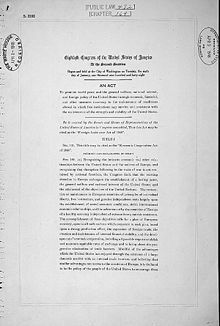“Punting the Pundits” is an Open Thread. It is a selection of editorials and opinions from around the news medium and the internet blogs. The intent is to provide a forum for your reactions and opinions, not just to the opinions presented, but to what ever you find important.
Thanks to ek hornbeck, click on the link and you can access all the past “Punting the Pundits”.
The Sunday Talking Heads:
This Week with Christiane Amanpour: Ms Amanpour will look at the budget showdown in Washington and the conflict in Libya with guests Sen. Charles Schumer, D-N.Y., Sen. Jeff Sessions, R-Ala., and General Jim Jones, Ret.
The roundtable with George Will, Nobel Prize-winning economist Paul Krugman of the New York Times, Republican political strategist and former Pentagon spokesperson Torie Clark and David Ignatius of the Washington Post take on the “Obama Doctrine.”
Face the Nation with Bob Schieffer:Mr. Schieffer’s guests, Senate Majority Leader Harry Reid, D-Nev. and Sen. Lindsey Graham, R-S.C. will discuss Libya and the budget
The Chris Matthews Show: This week’s guests Katty Kay, BBC Washington Correspondent, Andrew Sullivan, The Atlantic Senior Editor, Michael Duffy, TIME Magazine Assistant Managing Editor and Norah O’Donnell, MSNBC Chief Washington Correspondent will try to answer these questions:
Is President Obama failing to lead?
Could Republican red hots spoil the Party?
Meet the Press with David Gregory: Exclisive interviews with Assistant Majority Leader Sen. Dick Durbin (D-IL) and Chairman of the House Intelligence Committee, Rep. Mike Rogers (R-MI) to discuss the budget and Libya.
The roundtable guests are the president of the National Urban League, Marc Morial; Republican strategist and columnist for TIME Magazine, Mike Murphy; columnist for the Washington Post, EJ Dionne; presidential historian, Doris Kearns Goodwin; and the chairman of IHS Cambridge Energy Research Associates and Pulitzer Prize-winning author, Daniel Yergin.
State of the Union with Candy Crowley: Guests are Gen. James Jones (Ret.), Texas Sen. John Cornyn and Virginia Sen. Mark Warner.
Donna Brazile (the Obama loyalist) and Bill Bennett (the Islamaphobic bigot) will discuss the past week and what’s ahead.
Fareed Zakaris: GPS: Guests are former National Security Advisor to President Jimmy Carter, Zbigniew Brzezinski (Mika’s dad) weighs in on the turmoil in the Middle East and America’s response.
A roundtable discussion of Libya with Bernard-Henri Lévy, French Envoy to the Libyan resistance, and the private citizen most responsible for getting the world to intervene in Libya, Richard Haass, President of the Council on Foreign Relations, Robert Baer, a former CIA officer and author of See No Evil: The True Story of a Ground Soldier in the CIA’s War on Terrorism and Robert Worth, Middle East correspondent for the New York Times.
In a separate interview, Noman Benotman, a Libyan who says he was there during the planning of 9/11 but now works on counterterrorism talks to Fareed about what al Qaeda could be up to in his homeland.
And finally, a robot may have conquered Jeopardy, but are robots now conquering Afghanistan?
Fareed may well be worth the effort to get up and watch. Bernard-Henri is a very interesting man.

 On this day in 1948,
On this day in 1948, 

Recent Comments